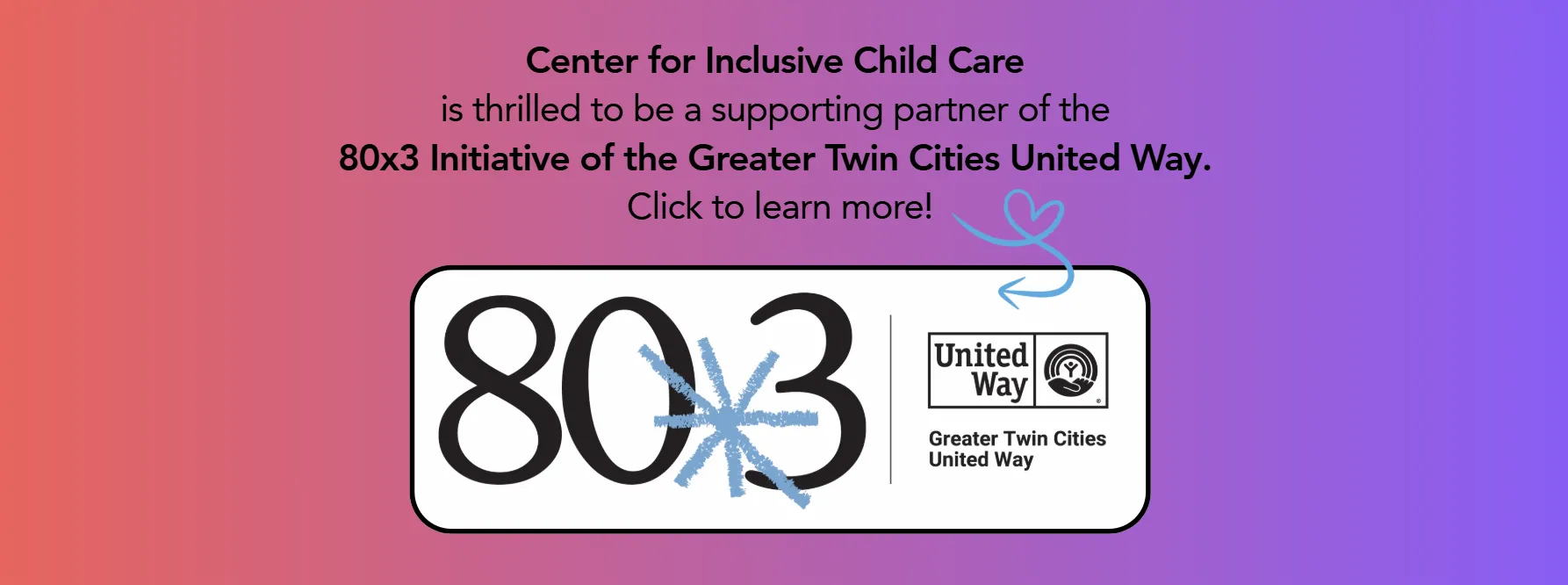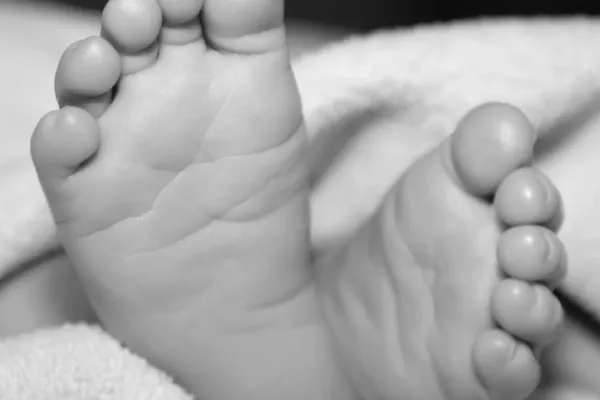
80x3: Resilient from the Start
FREE Resources to Explore
COMING SOON!
Be sure to explore our two-part series of self-study courses on Trauma Responsive/Healing Centered strategies. Both courses are available in English and Spanish!
• Trauma Responsive/Healing Centered Strategies Part 1: Relationships And Environments
• Estrategias centradas en la respuesta/curación del trauma Parte 1: Relaciones y desarrollo
• Trauma Responsive/Healing Centered Strategies Part 2: Self-Regulation For Children And Adults
• Estrategias centradas en la respuesta/curación del trauma Parte 2: Autorregulación para niños y adultos
80x3 Podcast Series: Focusing on Equity to Create Inclusive and Welcoming Early Childhood Environments
Join Dr. Nicole Evans from Embracing Equity and Beth Menninga and Priscilla Weigel of CICC as they discuss the central role of equity in creating inclusive early childhood environments. Dr. Evans presents a useful framework for taking action at three levels to promote equity in organizations. Examples are shared of how and where learning organizations identified needs and made changes aimed at creating more equity at the individual, cultural and systems levels. As we think about where to begin a focus on equity in early childhood environments, the group talks about ways to create strong family partnerships as a powerful first step.
Angela Clair, Director of Early Childhood Services at Wilder Child Development Center, joins Priscilla Weigel and Beth Menninga to share her center's story of rethinking their approach to expulsion with the goal of truly being inclusive. How can we include parents and staff to shift our organizational thinking and practices in our responses to big behaviors so that our doors welcome and support all children to thrive in our early childhood programs?
80x3 Podcast Series - Early Childhood Budgets, Boards, and Brain Development
Join our guests, Amanda Ziebell Mawanda, Art Rolnick, and Jamie Bonczyk in this three part series as they discuss how budgeting decisions in the early childhood education sector translate into positive brain development in young children. Barriers are highlighted as we talk through ways to foster organizational shifts, economic investment, stressing board recruitment and engagement as ways to support your organization’s work.
- 80x3 Podcast Series: Early Childhood Budgets, Boards, and Brain Development - Part 1
80x3 Podcast Series: Early Childhood Budgets, Boards, and Brain Development - Part 2
80x3 Podcast Series: Early Childhood Budgets, Boards, and Brain Development - Part 3
Supporting Sensory Needs of Young Children
Tune into 3 NEW episodes of the CICC Inclusion Matters podcast! Our guest, Alyssa Mason, Pediatric Occupational Therapist from M Health Fairview, joins us to discuss the sensory systems and sensory needs of young children in our care. This first conversation talks us through "a day in the life of a preschooler in child care,” the second addresses transitions, and the third explains how we might best support children who have experienced or may be experiencing trauma.
• Supporting the Sensory Needs of Young Children
• Supporting Sensory Needs Through Transitions
• Sensory Supports for Young Children Who Have or Are Experiencing Trauma
• Additional Resources to Support Your Work with Young Children
The Minnesota Association for Children’s Mental Health (MACMH) and Center for Inclusive Child Care partnered to host this live conversation for professionals in the field of early care and education (funded through the MN Preschool Development Grant).
• The Impact of Identity on Healing-Centered Practice
Pediatric Occupational Therapist Alyssa Mason describes how sensory activities may be used to support all children, with an emphasis on attending to the needs of children who have experienced trauma
• Sensory Strategies as Tools for Self-Regulation and Healing (Part 1)
• Sensory Strategies as Tools for Self-Regulation and Healing (Part 2)
To date, more than 150 early childhood changemakers have met regularly, shared resources and learned collaboratively. Preliminary evidence shows that our efforts have strengthened how educators and leaders use trauma-sensitive skills in their centers and increased the type of collaboration needed to address systemic challenges in the field.
Please Read: Lessons Learned from 80×3’s First Year




